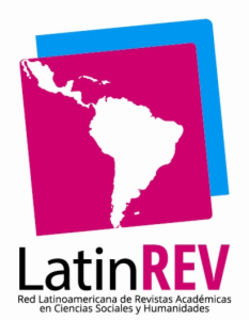URBAN ENVIRONMENTAL PLANNING AND MANAGEMENT REVIEWED FROM A SUSTAINABILITY PERSPECTIVE: REFORM OR TRANSFORMATION?
DOI:
https://doi.org/10.26512/2236-56562002e39673Keywords:
Urban environmental planning and management, sustainability, governanceAbstract
It is increasingly recognised that urban environmental planning and management (EPM) needs to address the challenge of sustainability. This is in order to ensure that gains in urban development made now do not result in cities that will need radical restructuring in the future because of their unsustainable resource demands and externalisation of environmental problems. Whilst the general reasons for focusing attention on this argument are easily stated, when looked at in more detail, it is evident that the operationalisation of consistent strategies to address the challenge of urban sustainability demands a radical transformation of the conventional assumptions and practice of urban environmental planning and management. The purpose of this paper is to analyse the content of such transformation, examining possible approaches to urban EPM.
Downloads
References
ALLEN, A. (1998). Ecología Política y Teoría de la Sustentabilidad Urbana. Buenos Aires: Facultad de Arquitectura, Diseño y Urbanismo, Universidad Nacional de Buenos Aires, Carrera de Especialización en Gestión Ambiental Metropolitana, Módulo 214.
ALLEN, A. et al (2001). Guidelines for Strategic Environmental Planning and Management of the Peri-Urban Interface. London: Development Planning Unit Volumes 1-3 (www.ucl.ac.uk/dpu/pui)
ALLEN, A. & YOU, N. (eds.) (2002). Sustainable Urbanisation: Bridging the Green and Brown Agendas. London: Development Planning Unit, University College London.
BARTON, H & BRUDER, N. (1996). A Guide to Local Environmental Auditing. London: Earthscan.
Boyden, S.; MILLAR, S.; NEWCOMBE, K., O’NEIL, B. (1984).The Ecology of the City and its People. Camberra: Australian National University Press.
BUCKINGHAM-HATFIELD, S. & PERCY, S. (eds.) (1998). Constructing Local Environmental Agendas. People, Places + Participation. London, Routledge.
Escobar, A. (1995). “El Desarrollo Sostenible. Dialogo de Discursos. Ecología Política. Barcelona: Vol. 9, 7-25.
Fernández, R. (1999). La Naturaleza de la Metrópolis. Estudios sobre Problemática y Gestión Ambiental Metropolitana. Buenos Aires: Ugycamba, FADU / UBA.
Gallopin, G. (1986). Ecología y Ambiente. In LEFF, E. (ed), Los Problemas del Conocimiento y la Perspectiva Ambiental del Desarrollo. México: Siglo XXI, 126-172.
GLAESER, B. (ed.) (1984). Ecodevelopment: Concepts, Projects, Strategies. Oxford: Pergamon Press.
Guimaraes, R. (diciembre 1994). El desarrollo sustentable: propuesta alternativa o retórica neoliberal? Revista EURE. Santiago de Chile: Vol. XX.
HARDOY, J.; MITLIN, D. & SATTERTHWAITE, D. (2001). Environmental Problems in an Urbanizing World. London: Earthscan.
Herrera, A. et al (1976). Catastrophe or New Society? A Latin American World Model. Otawa: International Development Research Centre.
JOAKES, S.; HEYZER, N.; ONIANG, R. and SALLES, V. (1994). “Gender, Environment and Population”. Development and Change, Vol. 25, No. 1, 137-165.
LEFF, E. (1994). Ecología y Capital. Racionalidad Ambiental, Democracia Participativa y Desarrollo Sustentable. México: Ediciones Siglo XXI.
Levett, R. (1997). “Tools, Techniques and Processes for Municipal Environmental Management”. Local Environment, Vol.2, No. 2, 189-202.
MARVIN, S. and GUY, S. (1997). “Creating Myths rather than Sustainability: The Transition Falacies of the New Localism”, Local Environment, Vol. 2 (3), 299-302.
Meadows, D.H; MEADOWS, D.L.; RANDERS, J. and BEHERENS, W.W. (1972). The Limits to Growth. New York: Universe Books.
Montenegro, R. (1982). “La Ciudad como Ecosistema: Relaciones entre la Ecología Urbana y el Planeamiento Ambiental”. In CLACSO/CIFCA (varios authors), Medio Ambiente y Urbanización. Buenos Aires: CLACSO, Biblioteca de Ciencias Sociales.
O’Connor, J. (1990). “Las Condiciones de Producción. Por un Marxismo ecológico. Una introducción teórica”, Ecología Política, Vol. 1.
Padilla, C.O. and SAN MARTÍN, P. (1996). Conflictos Ambientales. Una Oportunidad para la Democracia, Instituto de Ecología Política. Santiago: 7-41.
REES, W. (1992). ‘Ecological footprints and appropriate carrying capacity: what urban economics leaves out’, Environment and Urbanization, Vol. 4, No. 2.
Sabatini, F, (abril, 1997). “Conflictos ambientales y desarrollo sustentable de las regiones urbanas”, Revista EURE. Santiago de Chile: Vol. XXII, N° 68, 77-91.
SACHS, I. And SILK, D. (1990). Food and Energy. Strategies for Sustainable Development. Tokyo: Inted Nations University.
SATTERTHWAITE, D. (ed.) (1999). The Earthscan Reader in Sustainable Cities. London: Earthscan.
TODD, A. (1996). “Health Inequalities in Urban Areas: a Guide to the Literature”, Environment and Urbanization, Vol. 8, No. 2, 141-152.
United Nations Centre for Human Settlements (UNCHS) (1996). An Urbanising World - Global Report on Human Settlements. Oxford: Oxford University Press.
UNCHS (Habitat) / UNEP. (1997). Environmental Planning and Management (EPM) Sourcebook. Implementing the Urban Environment Agenda. Nairobi: UNCHS (Habitat) / UNEP, Volume 1.
Wackernagel, M. (1995). “¿Cuánto mide nuestra huella ecológica? Como utilizar el concepto de capacidad de carga apropiada para medir sustentabilidad?”. Chile Sustentable. Santiago: Serie Documentos de Trabajo.
WILSON, G.A. and BRYANT, R.L. (1997). Environmental Management. New Directions for the Twenty First Century. London: UCL Press.
WORLD COMMISSION on ENVIRONMENT and DEVELOPMENT (WCED). (1987). Our Common Future. Oxford: Oxford University Press.
Downloads
Published
Issue
Section
License

This work is licensed under a Creative Commons Attribution-NonCommercial-NoDerivatives 4.0 International License.






